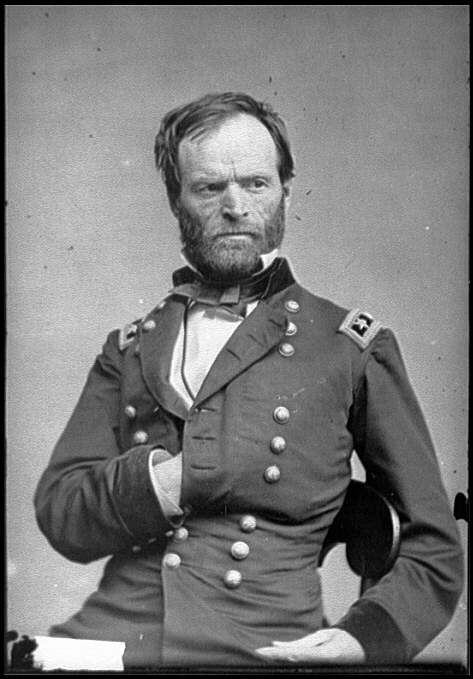| William Tecumseh Sherman was born on Feb. 14, 1820 in Lancaster, Ohio
and died on Feb. 14, 1891 in New York City. He was a Union general in the
Civil War, but was the most hated and despised man in the history of Georgia.
In the Atlanta Campaign on May 6, 1864 and the March to the Sea ending
two days before Christmas 1864 with him capturing Savannah, no one has
ever created more destruction. In result of his successful campaign,
in Georgia the confederacy was split in two and deprived of much needed
supplies, ending the war quickly with a Union victory.
William T. Sherman’s father died when he was very young. Widowed and unable to care for the entire family, his mother sent his brother, Thomas, to be raised by an aunt and William became a foster child to Thomas Ewing, his friend’s father. He later married Mr. Ewing’s daughter, Ellen. He was educated at the U.S. Military Academy at West Point. During the Mexican War, Sherman was posted in San Francisco. Prior to the outbreak of hostilities between the North and the South, William T. Sherman was superintendent of the Louisiana Seminary and Military Academy at Alexandria, Louisiana. On Jan. 18, 1861, Sherman resigned his position stating that he preferred to maintain his allegiance to the Constitution as long as a fragment of it survived. On May 8, 1861, Sherman wrote to the Secretary of War, offering his service not for three months, but for three years. He did not want to become a political general and on June 20, 1861 he accepted the grade of colonel in the Thirteenth Regular Infantry. |
 |